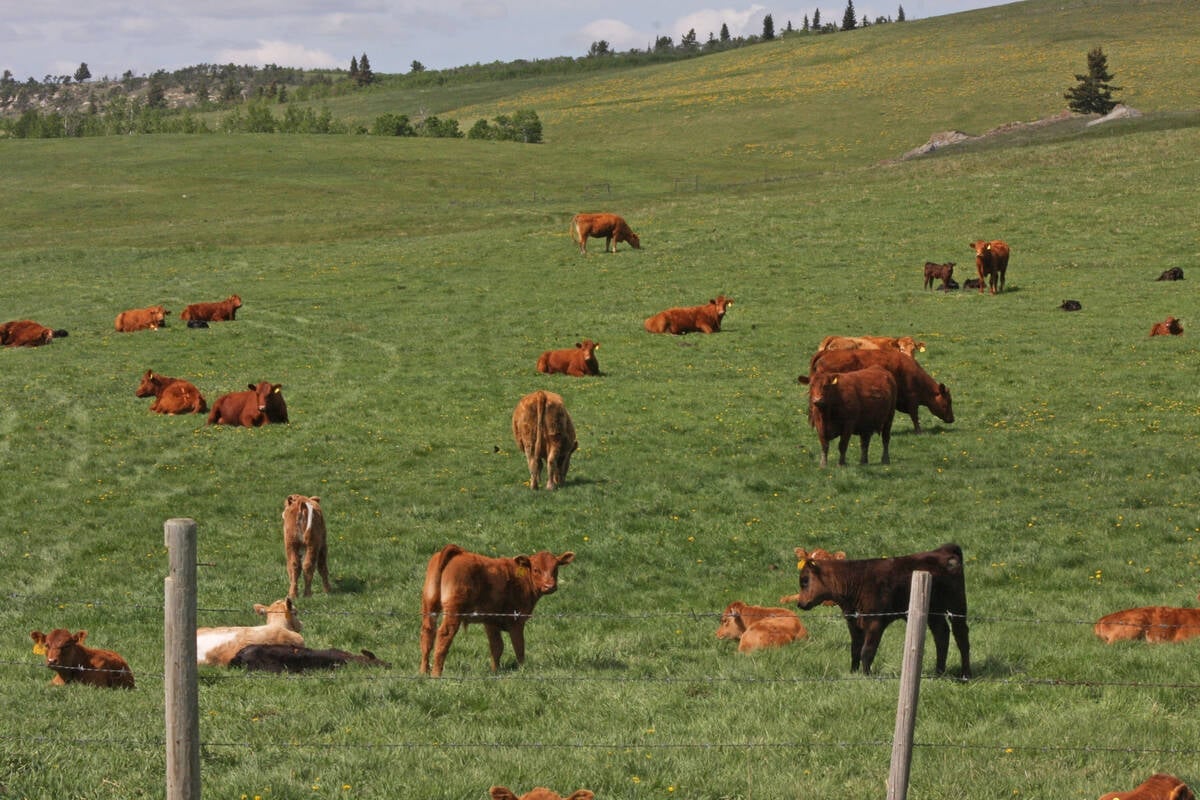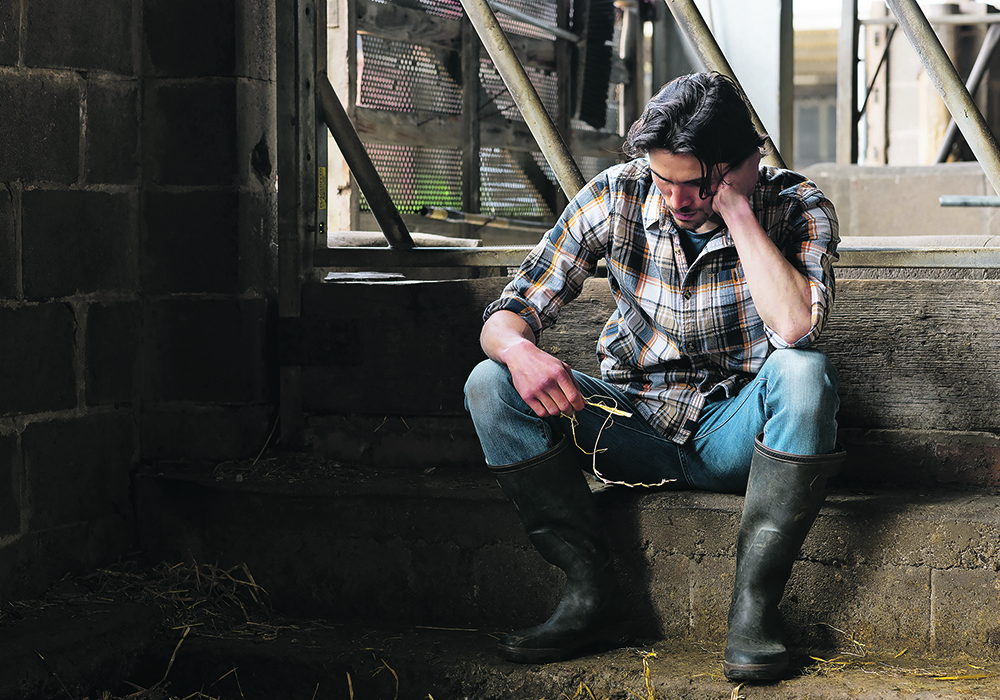Farm owners and operators should pay attention to the latest news in psychological health and safety because one day they may be responsible for it when it comes to their employees.
That’s according to one presenter at the recent Canadian Agricultural Safety Association digital conference.
“Here in British Columbia, they are beginning to write the legislation that will require employers to provide a psychologically healthy and safe workplace for their workers,” said Wendy Bennett of AgSafe BC.
What that legislation will look like is anyone’s guess, “but what I’m hoping is that they’re going to base all of this on the CSA (Canadian Standards Association) standard that was generated about 10 years ago and currently undergoing review.”
Read Also

Livestock leads Canada’s farm economic outlook
Forecasts by a major Canadian farm lender featured good and bad news on the financial health of both farmers and Canadians at large.
Psychological health and safety are interrelated, she said in her presentation. The CSA standard defines psychological safety as the absence of harm or threat of harm to an employee’s mental well-being.
The term “psychological health” refers to an employee’s ability to think, feel and behave in a way that lets them perform effectively in their work environments, personal lives and society. Problems cover a spectrum from common difficulties such as fatigue to more severe disorders, said Bennett.
“A psychologically healthy and safe workplace is one that promotes employee psychological well-being and actively works to prevent harm to avoid psychological health (problems) due to negligent, reckless or intentional acts.
“I’m sure you can think of bullying as an example of an intentional act, and it’s the employer’s obligation to prevent that from happening.”
Bennett outlined several CSA-documented workplace factors that affect psychological health and safety.
One of these is organizational culture. A good culture holds all people accountable. There is sincere respect for others’ ideas, values and beliefs and difficult situations are addressed effectively.
“Think about the organizational culture within your own operation,” she said. “When somebody new comes in, how do they learn about what that organizational culture is?”
A workplace with good psychological and social support ensures services or benefits are available for workers who experience stress, and it has a good understanding of employee mental health.
“It means workers believe their organization values their contributions, is committed to ensuring their psychological well-being and provides meaningful support if this well-being is compromised,” Bennett said.
Attendees asked what accommodation should look like. How far should accommodations go, for example, for an employee whose stress at home is beginning to impact their work, and how can the employer support them?
“It’s all related to the relationship that this individual has with the employer,” said Bennett.
“If it is impacting work, then it’s necessary to have a conversation with the worker to determine how they can reduce their stress.”
Response could include offering support through an employee assistance program, assisting them in receiving counselling to manage stress and recommending the employee check with their doctor to address stress levels.
How far those measures should go is a difficult question, Bennett said.
“They still have a job to do, and there are expectations to find that balance, but being supportive and encouraging them to take care of themselves I think is crucial.”
Bennett recommended the Guarding Minds at Work website, marketed as a free tool for employers to assess and address psycho-social factors known to have an impact on organizational and employee health, as well as the financial bottom line.
The site’s surveys evaluate the readiness of an organization to put a psychological safety program in place, said Bennett.
“There are surveys that employees can do, supervisors can do and employers can do.… It comes up with the results and encourages different ways to start.
“It can be something that happens really quickly or it can take a really long time, but it’s very important that there’s engagement from all levels. There has to be employees, managers, supervisors and all the middle people. It can’t be driven top down, or it won’t work,” she said.
Workload is often described as the biggest workplace stressor.
Bennett said a business that emphasizes good workload management keeps labour in line with reasonable expectations for each employee’s position and fosters openness for those employees to raise the issue with their supervisors.
Employees also have an appropriate level of control over prioritizing tasks and responsibilities when facing multiple demands.
“I think if we look back to the days when we were in lockdown and the multiple demands and requirements that were in place, particularly for families, there were full work expectations for many,” said Bennett.
“The families that managed to accomplish sanity in that time frame, I think (that) is amazing. I think workload management is a real issue that we have to be respectful of.”
The balance is trickier during peak farm seasons, when long hours in the cab are common and incoming weather might push work hours late into the night. Bennett said even two minutes off the tractor or the combine can help farmers improve mental health.
“We encourage farmers to take just two minutes to get out of the cab at the end of a row or whatever and take in your surroundings.
“I think that perhaps some farmers, because it’s so much work and they’re around it all the time, maybe they stop appreciating the incredible beauty of the area they are located. But they should be able to take some deep breaths and remind themselves that they’ve got this.”
Farmers may be geographically isolated compared to urban workplaces, but there is still community and a role for peer support.
Bennett drew on her own experience managing flood victims in British Columbia in 2021, as an example.
“There were farmers who were minimally impacted by the flooding, anod they formed groups to help support those who had been significantly impacted by the flooding. A lot of these groups came together just for coffee,” she said.
But the support didn’t end there.
“A lot of them came together to get resources. There were lots of donations and there were a lot of different donation centres that opened on farms. The sense of community that was built from this was absolutely incredible.
“The biggest (lesson) that I learned in all of the situations was that they need each other. And so being able to facilitate that seems to have the greatest impact.”















